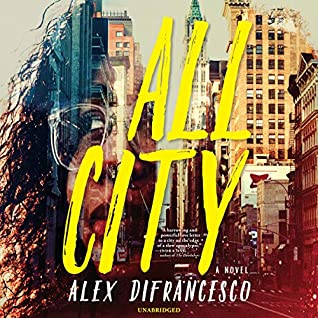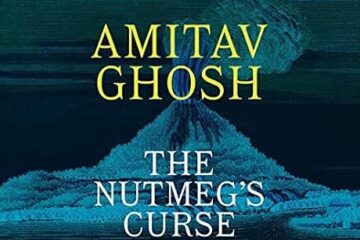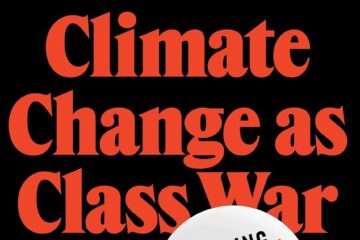Kelli Fitzpatrick | Book Review of Alex DiFrancesco’s All City
Seven Stories Press, 2019
As the climate continues to warm, superstorms are becoming increasingly commonplace. In December of 2021, an outbreak of 61 climate-change-fueled tornadoes strafed the central and southern United States, killing 80 people. The 2022 wildfire season also kicked off early, exacerbated by drought and strong winds. Climate refugees have already been displaced in multiple regions. This presents questions: What about those who find themselves facing a superstorm but cannot leave? Those who have nowhere to go, and maybe never have? That is the premise of the 2019 climate disaster novel All City by Alex DiFrancesco.
The book takes place in the near future when a superstorm slams New York City with flooding, power outages, and general chaos. The narrative follows three characters—Makayla, a convenience store clerk, Jesse, a homeless trans youth, and Evann, the daughter of a billionaire—whose paths overlap and intertwine in the wake of the storm. Relief efforts are insufficient and dispassionate, so Makayla spearheads the transformation of one of the abandoned condo buildings into a new place for those left behind to survive in. The story does not shy away from difficult subjects, dealing with loss, assault, self-harm, deep psychological trauma, and bigotry of all kinds, on top of the intense horror of a city in ruins.
However, the novel’s strength lies not just in its visceral no-punches-pulled depiction of climate disaster, but in its laying bare of the long history of institutionalized injustice and capitalistic exploitation that engineered the disaster, as well as the ways that marginalized populations have been forced to live in disaster conditions for a very long time. This suffering isn’t new, the story argues, and it isn’t happening by accident. Surveying the survivors of her flooded neighborhood, Makayla says, “These must be the people who are left. Not just left after the storm, but the kind of people who were like us, who were still left in the neighborhood, left behind by what had been happening all around us. People who had been forgotten.” All City tells those stories.
The immense privilege gap—in resources, in access to safety, etc.—is drawn into sharp relief through the juxtaposition of the desires of the three main characters: Evann’s craving for “magnifique” art for her collection, contrasted with Makayla’s resolve to keep the people she cares about alive and Jesse’s loyalty to their friends. Evann’s narrative reads almost like satire, it’s so laughable the vain things she is concerned with compared to the life-and-death struggles of the people around her, and yet the story humanizes even her. As the story’s “villain,” she makes surprisingly helpful choices, complicating her character. Likewise, the “heroes” sometimes do questionable things. The characters feel like real people whose motivations are complex and whose choices are often unfairly restricted by imposed circumstance.
In the same vein, there’s no perfectly happy ending to the story, no neat bow. The book breaks all kinds of structural conventions; the outcomes of the character arcs feel more like slowly unraveling threads than neatly tied-up endings. Not everything works out in the story. In fact, hardly anything works out. And these subversions feel real, disturbingly real. But the characters do succeed in building something, a different way of interacting with each other, that is outside the boundaries of capitalism, and that feels disturbing in an exciting way. DiFrancesco describes the ending as, “It’s grim but it’s not without hope.” Maybe that’s what we need most of all in our stories right now: to be disturbed by real, grim hope.
Alex DiFrancesco is a multi-genre writer and transmasc person (they/them) who is the author of Transmutation, All City, and Psychopomps. Their work has appeared in New York Times, Washington Post, Tin House, Pacific Standard, Eater, Brevity, Vol. 1 Brooklyn, and more. They are the recipient of grants and fellowships from PEN America, Sundress Academy for the Arts, and the winner of an Ohio Arts Council Individual Excellence Award for 2022. Their novel All City was the first awards finalist by a transgender author in over 80 years of the Ohioana Book Awards. They formerly served as an assistant editor for Sundress Publications in Tennessee, and currently edit LGBTQIA+ non-fiction for Jessica Kingsley Publishers. DiFrancesco lives in Philadelphia and is the human companion of a middle-aged, ill-mannered Westie named Roxy Music, Dog of Doom.
Kelli Fitzpatrick is an author, editor, and table-top game developer from Michigan. Her Star Trek story “The Sunwalkers” was selected as a winner of the Strange New Worlds contest and is published by Simon and Schuster. She has written and edited for the Star Trek Adventures role-playing game line from Modiphius Entertainment and is currently developing the XENOVITA TTRPG for Budgie Smuggler Games. Her fiction is published by Flash Fiction Online, KYSO Flash, Crazy 8 Press, and others, and her poetry appears in Dunes Review and Still Life.




